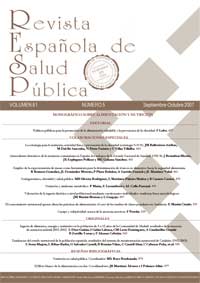Aspirin for the primary prevention of cardiovascular diseases in diabetic patients. A review of currently available tests
Abstract
The benefits of aspirin treatment in reducing the risk of myocardial infarction, cerebrovascular accidents and vascular death is well-documented among individuals having prior cardiovascular disease, including the subgroup with diabetes mellitus. The role of aspirin in primary prevention is less clear and debatable: the results of the clinical trials currently available are not consistent, although the meta-analyses are favorable in some aspects. There seems to be a disparity between the type of benefit (when found to exist) and gender, the findings being particularly contradictory for diabetic subjects, totalling a minor percentage of the population sample included in the studies. Despite this fact, in 1997, the American Diabetes Association and more recently other scientific societies (including several Spanish societies) have been recommending the use of aspirin in low doses in primary prevention in all type 1 or type 2 diabetic patients over 40 years of age and in all those within the 21-40 age range having any other cardiovascular risk factor in addition to diabetes (family history of vascular disease, hypertension, smoking, dyslipidemia or albuminuria). This study reviews the findings of the randomized, controlled clinical trials on primary cardiovascular prevention with aspirin, on which the official American Diabetes Association guidelines might be based, the conclusion being reached that there is not currently sufficient scientific evidence to uphold these guidelines.Downloads
Published
2008-03-17
Issue
Section
SPECIALL COLLABORATIONS

